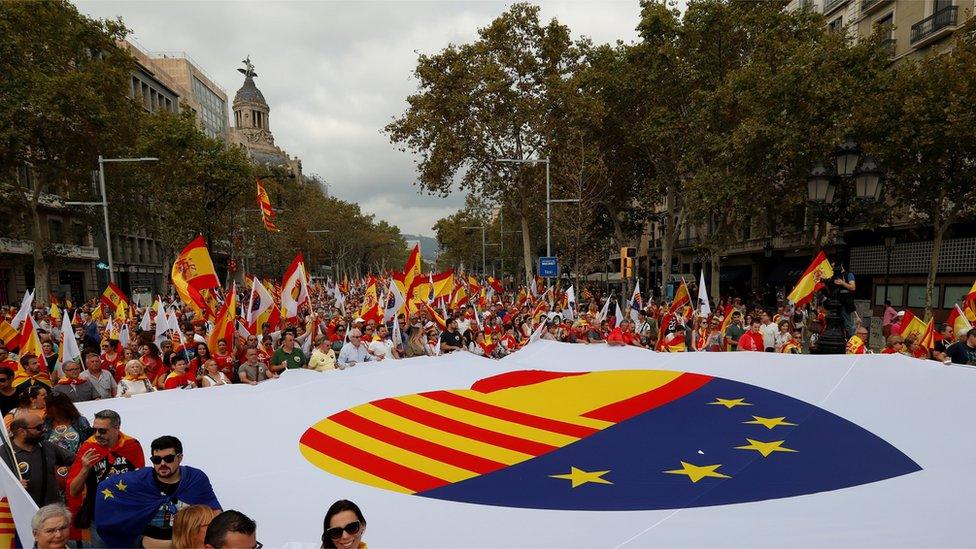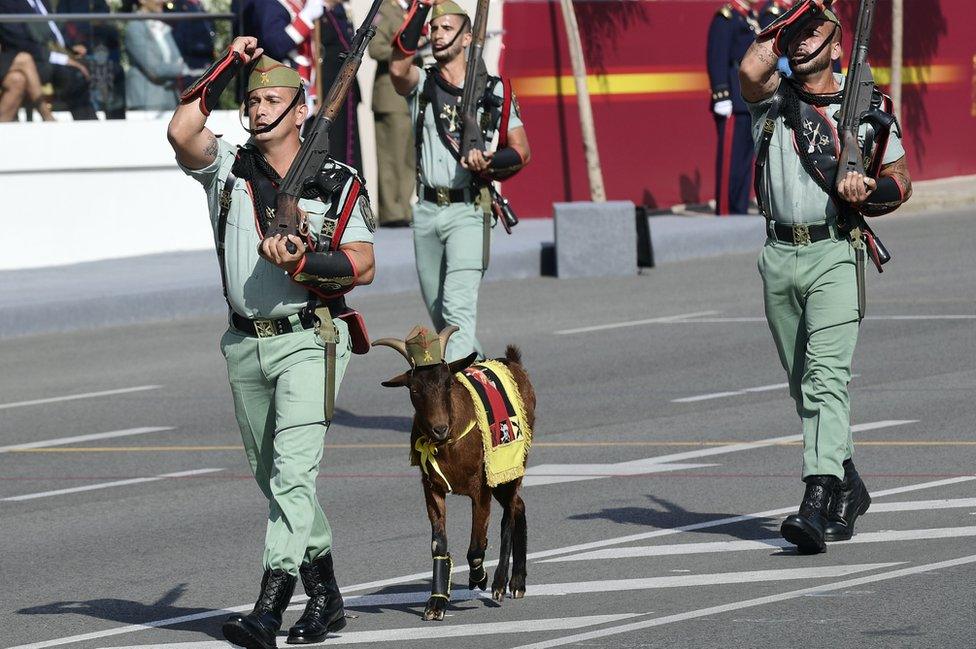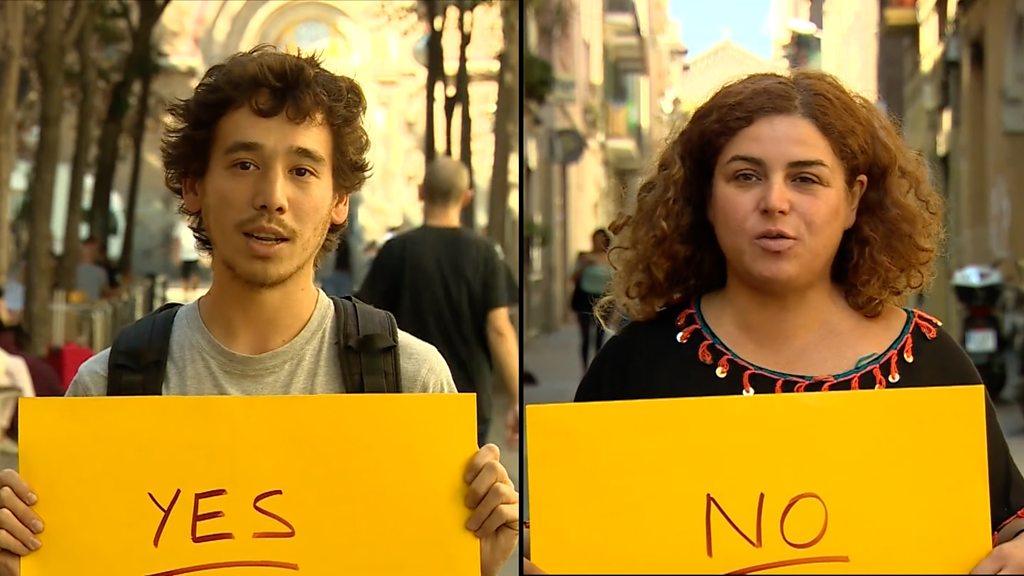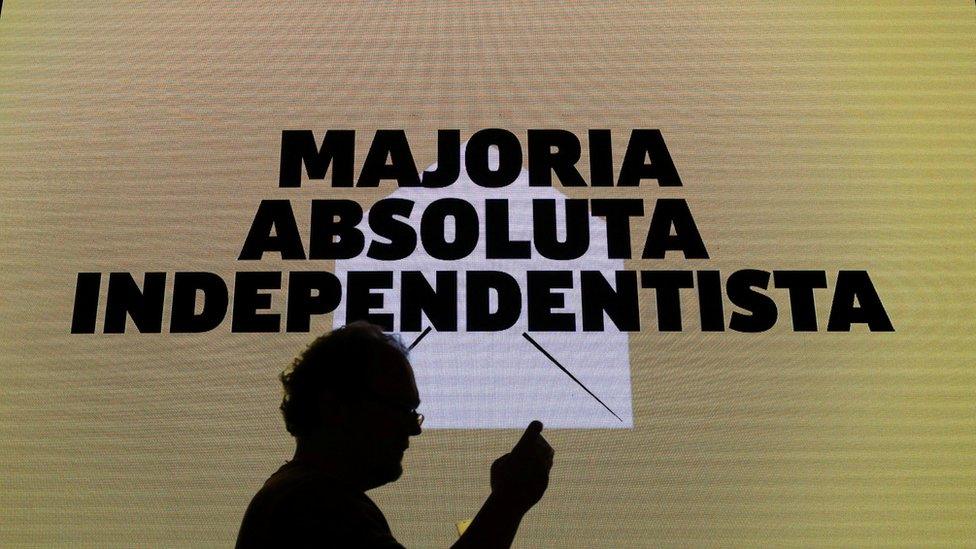Catalonia: Spain celebrates National Day amid political turmoil
- Published
- comments
Spain staged a big patriotic show for its national day
Spain's royal family has attended a National Day military parade amid a political crisis sparked by Catalonia's disputed independence referendum.
Prime Minister Mariano Rajoy told MPs on Wednesday that democratic Spain was facing its most serious threat for 40 years. Madrid may impose direct rule.
Mr Rajoy has given the Catalan leader five days to clarify whether or not he has declared independence.
Human Rights Watch says, external Spanish police used excessive force in Catalonia.
The US-based international rights group says it documented "excessive use of force against peaceful demonstrators" in Girona and two villages in Catalonia during the 1 October independence referendum.
It said the Spanish government must conduct an "effective investigation" into the incidents, which occurred during a vote that Spain's Constitutional Court had declared illegal.
There was shock and outrage in Catalonia and elsewhere at the violence of Spanish Civil Guards and national police.
The National Day is a public holiday and commemorates the Christian reconquest of Spain and Christopher Columbus's first arrival in the Americas in 1492.
Several thousand supporters of Spanish unity, including members of a far-right nationalist group, rallied in Barcelona, waving Spanish and Catalan flags.
A large military parade took place in Madrid and other events are being held across the country.

A pro-unity rally in Barcelona: The symbol combines the flags of Spain, the EU and Catalonia

In Madrid the Spanish Legion paraded with their goat mascot
Catalan officials say almost 90% of voters backed independence on 1 October, with a turnout of 43%. Anti-independence voters largely boycotted the ballot and there were reports of irregularities.
Catalonia, one of Spain's wealthiest regions, has seen several major companies announce plans to move their head offices elsewhere because of the crisis.
Following days of intense speculation, Catalan President Carles Puigdemont signed a declaration of independence in Barcelona on Tuesday, but immediately suspended its implementation to allow for talks with Madrid.
The move frustrated hardline separatists and brought scorn from the Spanish government.
Mr Rajoy accused the Catalan leader of creating confusion
After holding an emergency cabinet meeting on Wednesday, Mr Rajoy accused Mr Puigdemont of having created "deliberate confusion" and said he wanted to restore "certainty".
He said his government had asked the regional government , externalto clarify whether or not it had declared independence.
If Mr Puigdemont confirms by Monday that he has, he will be given a further three days to withdraw the declaration.
Failing that, Madrid will invoke Article 155 of the constitution allowing it to suspend the region's autonomy and impose direct rule. Article 155 has never been used before.
'Restore normality'
"There is an urgent need to put an end to the situation that Catalonia is going through - to return it to safety, tranquillity and calm and to do that as quickly as possible," Mr Rajoy said.
He accused separatists of hatching an "anti-democratic plan foisting their will on all the people of Catalonia", and said the Spanish government had had no choice but to restore order.
Addressing parliament later, Mr Rajoy said Spanish democracy was "experiencing one of the most serious moments in its history".
"It falls to the Catalan leader to restore constitutional normality," he added, rejecting any suggestion of outside mediation.
He said he was willing to negotiate on the issue of regional autonomy and changes to the constitution, but this had to be within the framework of the law.
- Published7 October 2017

- Published18 October 2019
